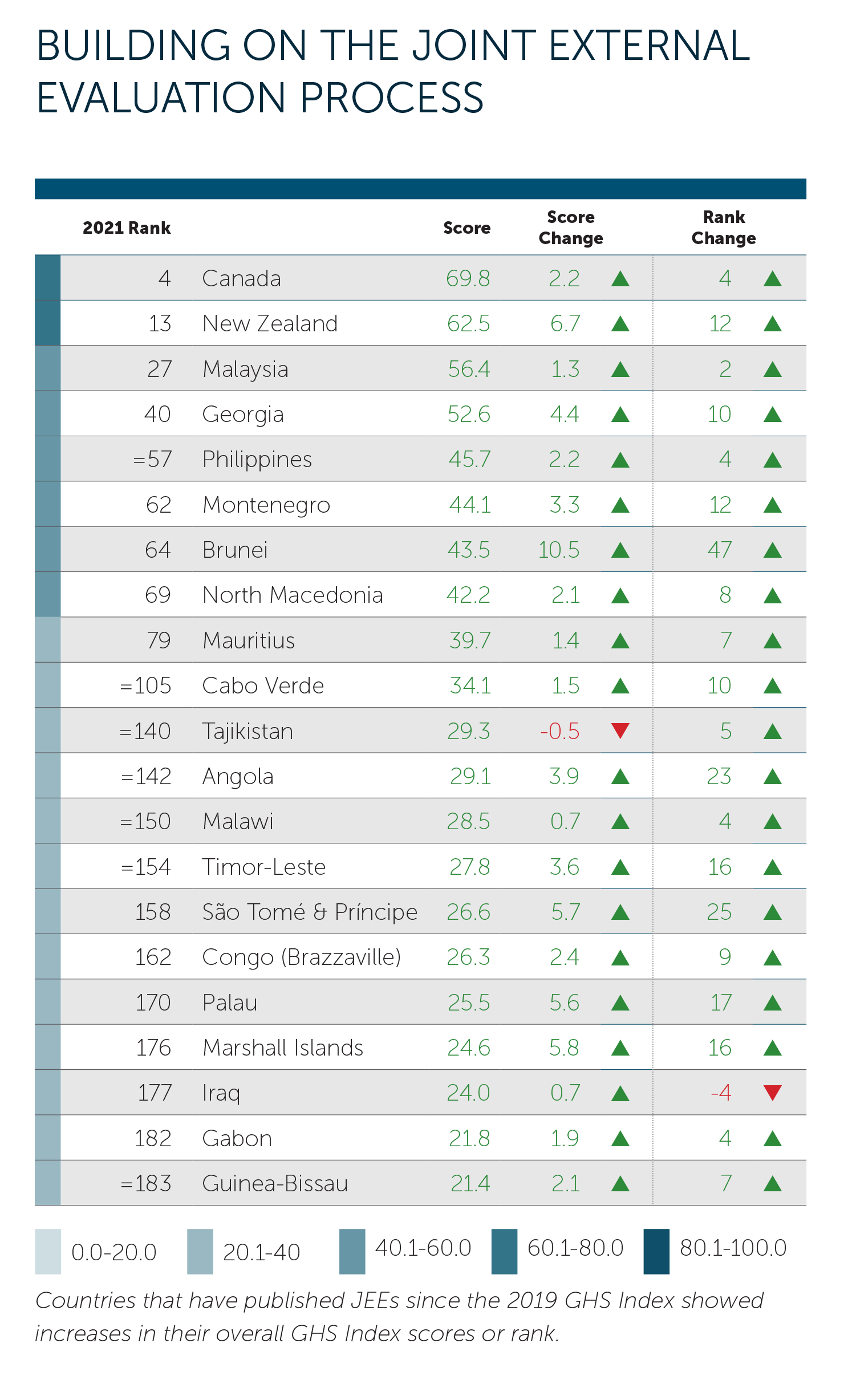- Analysis
- December 8, 2021
By regularly releasing data on countries’ health security capacities, the GHS Index aims to generate additional political will for resources to fill identified gaps. By design, the GHS Index is meant to bolster the Joint External Evaluation (JEE) process, which is a WHO led independent, collaborative, and multi-sectoral assessment of countries’ health capacities related to the prevention, detection, and response to health threats. The GHS Index builds on the JEE process by using data from countries’ completed JEE reports and by collecting data on countries that have not yet participated in the JEE process. The GHS Index also expands the amount of data available globally by providing assessments of dimensions not well covered by JEEs, such as the strength of countries’ health systems, compliance with international norms, health security financing, and risk environments. By collecting data on nearly every country, the GHS Index markedly increases transparency about health security strengths and gaps around the world.
Since the release of the 2019 GHS Index and by the end of the 2021 GHS Index research period, an additional 21 countries have published a JEE. All of those countries have shown an increase in score, rank, or both for their overall GHS Index scores. The Marshall Islands, Palau, São Tomé and Principe, Brunei, and New Zealand all saw more than a five-point increase in their overall score. The Philippines saw an almost 20-point increase in its score for the detection category, and Georgia showed a more-than-10-point increase in the health systems category. The publication of data on health security capacities allows for increased global support for the JEE process and, more importantly, for countries to better understand their gaps in preparedness.
